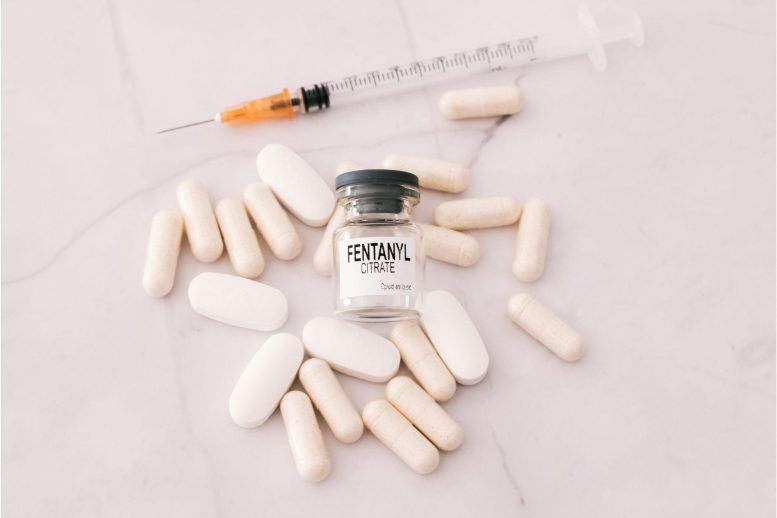
According to the Centers for Disease Control, overdoses claim the lives of 100,000 Americans annually, with a significant majority attributed to the consumption of synthetic opiates such as fentanyl. Although naloxone, currently the only antidote for opiate overdose, is more widely available now, it is less effective against fentanyl-class synthetic opioids.
Researchers at Indiana University have identified a new method of reversing the effects of fentanyl, which is 50 to 100 times stronger than morphine. Their study, published in the Journal of Medicinal Chemistry, could lead to a new way to reverse overdoses either through a new product or working synchronously with naloxone.
“The synthetic opiates bind very tightly to the opioid receptors,” said Alex Straiker, senior research scientist for the Gill Center for Biomolecular Science. “Naloxone must compete with opioids for the same binding site in the central nervous system to cancel out an overdose. But during a fentanyl overdose, naloxone and fentanyl bind to different sites, meaning there is no competition. We wanted to see if a negative allosteric modulator could reverse the fentanyl effects.”
Straiker began measuring the effect of opioid receptors on a signaling molecule called cAMP. Fifty structurally related molecules were tested chemically to identify which compounds showed the most promise to be an effective negative allosteric modulator.
Researchers found cannabidiol, or CBD, could behave as a negative allosteric modulator at the binding site. However, high concentrations were necessary during initial testing. Researchers modified the cannabidiol structure to be more effective and found that in the in vitro – tests done on blood or tissue samples – diagnostics, it successfully reversed the effects of fentanyl.
“We’ve identified structural parts that are important for the desired antidote effect,” Straiker said. “Some of these compounds are much more potent than the lead. We’ve worked with a third lab to model the binding site that may help identify additional compounds moving forward.”
The next step is testing their findings in vivo, meaning on living organisms, to determine if it reverses respiratory depression which is the main overdose effect.
Reference: “Structure–Activity Relationship Study of Cannabidiol-Based Analogs as Negative Allosteric Modulators of the μ-Opioid Receptor” by Taryn Bosquez-Berger, Jessica A. Gudorf, Charles P. Kuntz, Jacob A. Desmond, Jonathan P. Schlebach, Michael S. VanNieuwenhze and Alex Straiker, 12 July 2023, Journal of Medicinal Chemistry.
DOI: 10.1021/acs.jmedchem.3c00061
Additional authors on the study were Taryn Bosquez-Berger, IU Bloomington Psychological and Brain Sciences Ph.D. candidate, Jessica A. Gudorf, IU Bloomington graduate student in organic chemistry, Charles P. Kuntz, Jonathan P. Schlebach, assistant professor of chemistry at IU Bloomington and Michael S. VanNieuwenhze, Standiford H. Cox Professor of chemistry at IU Bloomington.